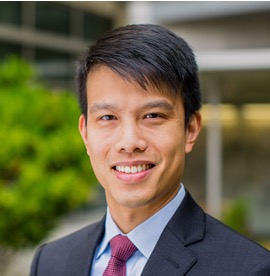
Dr. Yiwey Shieh
Dr. Yiwey Shieh is an assistant professor of population health sciences in the Division of Epidemiology. He received his MD and Master of Advanced Study (MAS) in clinical research from the University of California San Francisco (UCSF). Dr. Shieh completed his residency in internal medicine and primary care at the University of Pennsylvania, followed by a research fellowship at UCSF. Before joining Weill Cornell Medicine, Dr. Shieh was an assistant professor of medicine at UCSF.
Tell us about your research.
The goal of my research is to improve breast cancer screening and prevention using personalized or “precision” methods. Current recommendations are one-size-fits-all or use crude ways of estimating risk. This can lead to “over-screening” some women, which can result in false positives or overdiagnosis, and “under-screening” others, resulting in the development of late-stage cancers despite regular screening. I am particularly interested in using genetic markers, e.g., common genetic variants, to build better risk prediction models so we can offer screening tailored to risk. While my work is mainly in breast cancer, I am interested in applying this concept to other common cancers.
What expertise do you bring to this role?
As a clinician-investigator, I bring multiple perspectives to my research. In my practice as a general internist, I am often charged with discussing and offering cancer screening and prevention options to my patients. In my research, I use methods from genetics, epidemiology, and biostatistics to help build better tools to aid in this process. As an investigator in the WISDOM Study (Women Informed to Screen Depending On Measure of risk), the first-ever clinical trial studying personalized breast cancer screening, I have real-world experience in thinking about how emerging risk prediction tools can be used to guide clinical decision-making.
What brings you to Weill Cornell Medicine?
I am excited to be part of a growing cancer population sciences program that has exceptional leadership and is filled with talented, successful colleagues. There is a truly dynamic scientific scene found at Weill Cornell Medicine, as well as the greater tri-institutional and NewYork-Presbyterian network. Practicing within this system allows me to be part of an excellent clinical enterprise serving a diverse population.
Are there any trends or issues you are currently following in your field?
The main question is whether personalized screening will improve patient outcomes while being feasible on a larger scale. My colleagues and I are currently studying these questions as part of the WISDOM Study. In addition, much attention is being paid to using genetic risk models to predict not only overall cancer risk, but the intrinsic biology of the cancer that will develop. This is a personal interest of mine and the subject of a K08 grant funded by the National Cancer Institute that I currently hold. I am using new techniques to tailor genetic risk scores to better predict aggressive breast cancers. Lastly, I am interested in integrating other emerging risk markers, e.g., radiomics, methylomics, into these risk models.
- Highlights

